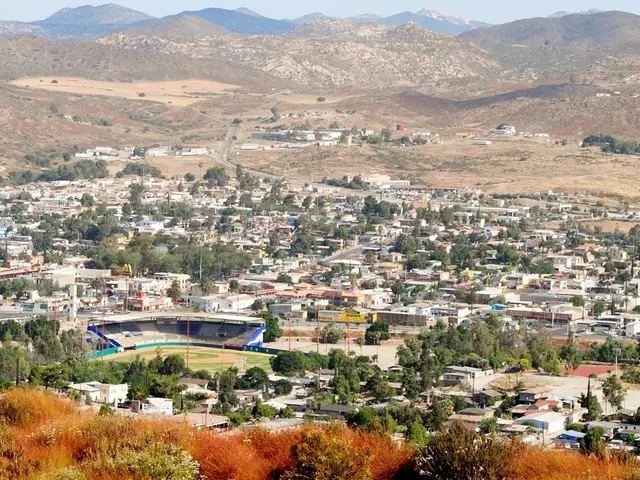Civic Nurturing Ground for Future Journalistic Pioneers: Youth Edition
In the bustling metropolis of New York City, home to five major daily papers and 116 neighborhood media outlets, the importance of nurturing the next generation of journalists has never been more pressing. College journalists have broken significant stories and championed reporting on higher education issues in the past year, showcasing their potential to make a lasting impact on society.
Non-profit organizations such as Press Pass, The Bell, and the Youth Journalism Coalition are playing a crucial role in this endeavour. These organizations offer workshops for students and teachers aimed at kickstarting publications at individual schools, fostering an environment where young minds can develop their journalistic skills.
Skills associated with journalism and news publications go beyond reporting, writing, and editing. They encompass areas like photography, graphic design, art, marketing, and cartooning, providing a comprehensive education that prepares students for a diverse range of careers.
Investing in student journalism programs offers numerous benefits. For instance, programs like the Journalism & Media Production MA offer hands-on experience in professional content creation, equipped with advanced facilities and technology. Students learn multimedia production, live broadcasting, and ethical reporting practices, better preparing them for careers in journalism and related fields.
Moreover, these programs instil critical thinking and ethical awareness. Training includes analytical methods to critically consume and create media messages, emphasizing ethical issues relevant to strategic communication and journalism. This foundation equips students to navigate and challenge the misinformation often amplified by social media.
Real-world experience and networking are also key benefits. Access to internships with major media companies in NYC allows students to engage with industry professionals, gaining crucial insights and connections that enhance career prospects and professional standards.
Addressing social media polarization is another significant advantage. By cultivating journalists who value accurate, balanced reporting and ethical communication, student journalism programs counteract social media's tendency toward echo chambers and polarized content. Well-trained journalists can provide context and verify facts, which helps diminish the spread and impact of divisive misinformation.
Investing in student journalism programs is not just beneficial for the students; it also supports the journalism profession. The future of the profession depends on a pipeline of skilled professionals who uphold journalistic standards amid rapidly changing media landscapes influenced by AI and digital platforms. This ensures the profession remains relevant, trustworthy, and capable of responding to technological shifts.
In summary, increasing investment in student journalism programs in New York City strengthens the quality and integrity of future journalists through practical training and ethical guidance, which in turn supports the journalism profession’s vitality. It also contributes to reducing social media polarization by promoting fact-based, responsible reporting.
The future of American democracy depends upon a rising generation of civic-minded individuals, including those involved in student journalism. Wider access to student journalism programs in New York City could create a pipeline for talented people from all backgrounds to enter the journalism profession. Advocates, recognizing the hurdles to creating sustainable school-based journalism programs, should join forces to explore the possibilities for a city-wide student newspaper.
- Nurturing the next generation of journalists in New York City is increasingly important, as college journalists have demonstrated their potential to significantly impact society by breaking significant stories and reporting on higher education issues.
- Non-profit organizations like Press Pass, The Bell, and the Youth Journalism Coalition are integral to this endeavor, providing workshops for students and teachers to establish school publications.
- Skills such as photography, graphic design, marketing, and art complement traditional journalism skills, providing a holistic education that prepares students for diverse careers.
- Professional content creation programs, like the Journalism & Media Production MA, offer advanced facilities and technology, enabling students to learn multimedia production, live broadcasting, and ethical reporting practices.
- These programs instill critical thinking, ethical awareness, and analytical methods for the critical consumption and creation of media messages, preparing students to challenge misinformation in the age of social media.
- Real-world experience and networking opportunities are also valuable; internships with major media companies in NYC offer insights and connections essential for a student's career growth.
- Promoting accurate, balanced reporting and ethical communication among young journalists can counteract social media's tendencies towards echo chambers and polarized content, helping to diminish the impact of divisive misinformation.
- Investing in student journalism programs, not only benefits students, but also supports the journalism profession, ensuring its relevance, trustworthiness, and adaptability to rapidly changing media landscapes influenced by AI and digital platforms.






